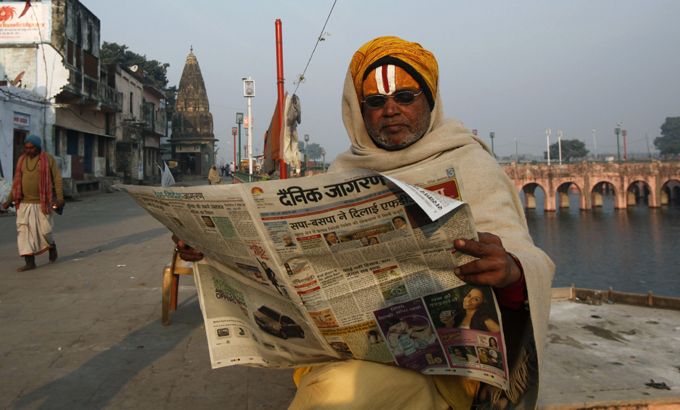
Tarun Tejpal: Fighting the ‘loud sameness’
The journalist and founder of ‘Telhelka’ discusses the promise and perils of muckraking journalism in modern India.
India, the world’s largest democracy of 1.2 billion people, is also home to one of the fastest growing media markets – there are hundreds of TV channels, print outlets, radio stations, and that’s before you even contemplate the Internet.
But quantity and quality rarely go hand in hand, and in India, it is the same, popular, news narrative that gets repeated on the airwaves, and in the headlines, again and again.
Keep reading
list of 4 itemsUK returns looted Ghana artefacts on loan after 150 years
Fire engulfs iconic stock exchange building in Denmark’s Copenhagen
Inside the pressures facing Quebec’s billion-dollar maple syrup industry
Among the cacophony of hyperbolic voices chattering about Bollywood and cricket, there are a few pioneering journalists going against the grain.
One of them is Tarun Tejpal, a career journalist and a bit of public icon in the country since he founded Telhelka.com, an investigative news website back in 2000.
Telhelka is the Hindi word for sensation. Tarun Tejpal says his goal was to create a publication committed to constructive, crusading journalism, to counter the frivolity of the Indian mainstream news narrative and to hold power to account.
It was inevitable the magazine would ruffle feathers, most of them political. The publication first came to prominence in early 2001 when its website exposed match-fixing in Indian cricket.
Later that year, it documented a culture of bribery at the Ministry of Defence, leading to the resignation of the defence minister. That journalistic sting operation almost led to Tehelka’s downfall as well; after police raids and a lengthy judicial inquiry the number of staff fell from 125 employees to just three.
After more than two years of defending itself, Tehelka, with the help of India’s cultural elite, was reborn as a weekly newspaper. Today, Telhelka’s brand of journalism is attracting more and more readers, both in English and Hindi. But how long can Tehelka last?
The Listening Post‘s Meenakshi Ravi sat down with Tarun Tejpal in London.
|
“It’s all much too much the same. The curious thing is that, while the number of media outlets has multiplied, the focus of the concerns has narrowed. The problem with that loud sameness is that it drowns out the complexities of India. On the good side, the amount of media focus that we have today is constantly putting questions to power. The media pressure on big issues is constant. I’m definitely for the florescence of media, for the multiplicity of media, because I think India’s greatest prophylactic against oppressive regimes, of any kind, is really the multiplicity of media.” Tarun Tejpal |